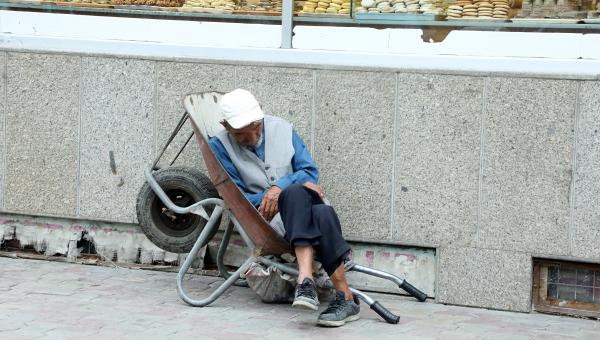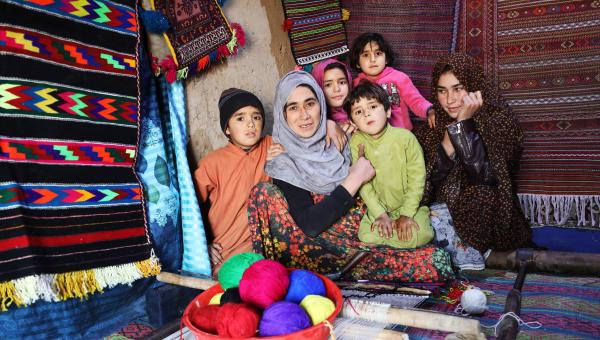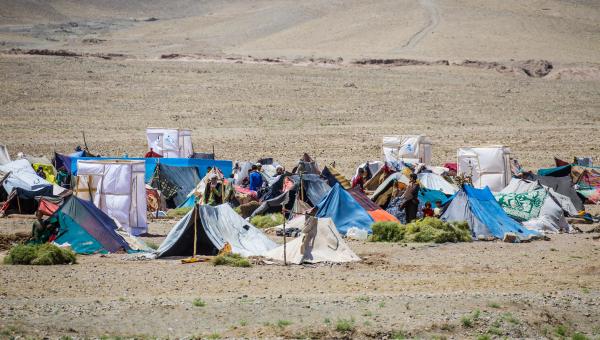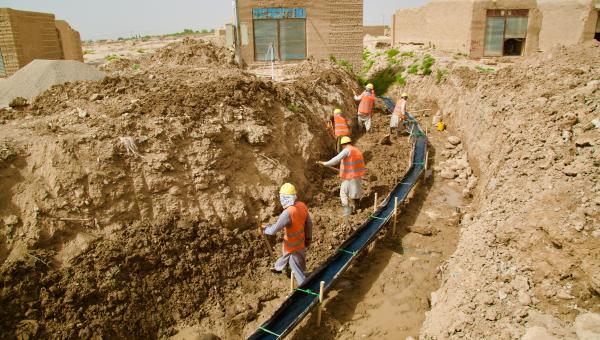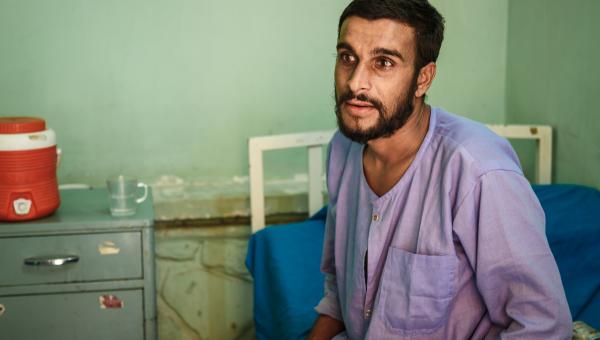Combined Grant to Support
HIV/AIDS, Tuberculosis & Malaria Programs and Health Systems in Afghanistan
Overview
The delivery of the health services in Afghanistan is operated under the stewardship of the MoPH, largely through the Health Emergency Response (HER) Project supporting Basic Package of Health Services (BPHS) at community-based facilities and the hospital Essential Package of Health Services (EPHS). Implementation of BPHS has primarily been “contracted out” to local and international NGOs.
Following the regime change in August 2021, the GF placed the Afghanistan portfolio under Additional Safeguards Policy (ASP) and established Afghanistan as a non-CCM country. In October 2021, all Global Fund grants (HIV, Malaria and TBRSSH UNDP and the MOPH TB grant) were consolidated into one grant (AFG-Z-UNDP) with UNDP as PR, for a total value of $79.1million. UNDP is currently the Principal Recipient (PR) for the Combined grant to support HIV/AIDS, Tuberculosis & Malaria programs and Health Systems in Afghanistan, and the grant will be implemented until 31 December 2023. Given the complex and evolving context in Afghanistan, UNDP continued to focus on key priorities for TB, HIV, Malaria and RSSH and has been able to keep proper track of programme and budget implementation. Additionally, UNDP has assisted national stakeholders to implement planned activities and reach the population in need.
Malaria and TB services are integrated into the BPHS and EPHS. Under the consolidated grant, TB and Malaria services are covering all 34 provinces and HIV is only covering 8 provinces (Kabul, Kunduz, Kandahar, Balkh, Khost, Nangarhar, Ghazni and Herat). The combined grant is designed to support NSP priorities of NTP, MVDP, and ANPASH for the period of 2021 – 2023. The UNDP-GF is responsible for overall grant implementation, financial accountability, M&E, and all procurement and distribution of health and non-health products.
The country context has changed after the collapse of government on August 15, 2021, and sustaining the health system has become a major challenge. Due to funding constraints and inappropriate planning, most of the health facilities are faced stock-outs of essential medicines and consumables. The breakdown in health facilities is affecting the availability of basic and essential health services including for HIV/AIDS, Tuberculosis and Malaria (HTM) diseases particularly shortage and stock out of antimalarial medicines and consumable in malaria high endemic provinces.
Under the Global Fund programme, UNDP supports Tuberculosis prevention and improved diagnostic services, strengthens case notification through screening among under-covered and high-risk groups such as prisoners, IDPs and children, expanded the Public Private Mix to new provinces and Contact Management for active case finding.
To reduce Malaria, UNDP supports the distribution of long-lasting insecticidal nets in all transmission areas, conducts awareness campaigns and helps improve monitoring, case management and access to facility and community-based treatment.
To prevent HIV, UNDP scaled up HIV interventions amongst Key Affected populations in the country through the provision of HIV preventive and treatment services to high-risk population. The HIV programme is implemented in 8 provinces (Kabul, Herat, Kandahar, Balkh, Nangarhar, Khost, Ghazni, Kunduz).
There are certain challenges that will negatively affect the program implementation and overall results.
- Shortage and stock out of anti-malarial is currently the key challenge, particularly in malaria-high endemic areas (Nangarhar, Kunar, Laghman, and Nuristan). Delay in the supply of antimalarial will be disastrous for the malaria program and will increase the risks of malaria outbreaks. There is an urgent need of antimalarials to be supplied to all health facilities faced with shortages and stock out of antimalarial, especially in high-risk provinces. UNDP is continuing to have conversations with UNICEF and other donors.
- Difficult procurement processes including lengthy international procurement processes, long delivery times, limited flight availability and cancellations, closure of main borders, complicated process of pre-import approval from AFDA and importation certificate from DRC for narcotic drugs, late delivery of health commodities and inadequate health product storage conditions and space.
- Weak capacity of some SRs is another area of concern, and the PR continued to provide technical support, and hired a Capacity Development consultant to update the SR capacity development plan which is designed to develop the functional capacities of the SRs. UNDP/GF Capacity Assessment and Consolidated Capacity Development Plan for IPs/SRs was updated and revised, and implementation is ongoing.
- For HIV, the ban on services for men and women with high-risk behaviours has limited access and provision of services to these groups. Key and vulnerable populations such as PUD, women, prisoners and PLHIV face stigma and discrimination, and lack of access to health care services. PUD are also at risk of mandatory detoxification, incarceration, harassment by the authorities and violence; and female drug users, who already face gender discrimination, require a male relative to access services and make health care decisions.
Objectives
- To halt new HIV, STI & Hepatitis infections and improve the health and quality of life of people living with and affected by HIV, STIs, and Hepatitis in Afghanistan over the next five years.
- To reduce TB deaths by 75% by the end of 2025 compared to 2015.
- To ensure that Afghanistan is on track to eliminate malaria by 2030 – contributing towards country development and the Sustainable Development Goals
- To decrease TB incidence rate by 20% by 2024 (to reach 50% reduction in incidence rate compared to 2015) in order to be aligned with End TB Strategy
- To strengthen the health system to reduce mortality and morbidity associated with ATM and Reproductive Maternal Neonatal and Child Health (RMNCH)
Major Achievements
- From Jan 2021 to mid-2023, a total 127,021 Tuberculosis cases were notified and enrolled for the treatment & improved access to TB high risks group (IDPs, Prisoners, Migrants/refugees, and others).
- Improved laboratory network and roll out the new diagnostic technology (Gene Xpert services) in all 34 provinces.
- 2,300,586 LLINs distributed through mass campaign to the community and 442,961 LLINs distributed through ANC visit to pregnant mother in malaria endemic provinces.
- The proportion of confirmed malaria cases increased from 49% (2016) to 69% (2017), 83% (2018), 99% (2019), 99.9% (2020) 99.9% in (2021) and 99.9% in (2022 & 2023).
- The deaths due to malaria has declined from 10 cases in 2017, 1 case in 2018 and zero cases in 2019, 2020, 2021 and 2022.
- A total of 1,121 (male 724 and female 397) people living with HIV are currently receiving antiretroviral therapy. The ART uptakes increased from 340 in 2015 to 1,121 cases by end of 2022.
- Capacity building of health personal (MD, lab technician, CHS, Midwife and CHW) on TB and Malaria case management (diagnosis, treatment, and prevention).
- Digitization the M&E system of Malaria and TB programs and scale up of new system to all 34 provinces.
- Updated HIV recording and reporting tools and developed HIV electronic database.
Related Materials
Impact
Relevant Content

 Locations
Locations
